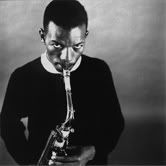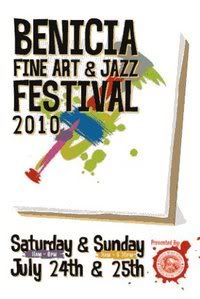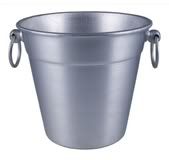I know that Chet, and late Chet in particular, can be love-it-or-hate-it proposition, but I think you have to concede he's doing a hell of a lot musically with not a lot technically--and at a time when the technical side of the equation was giving me nothing but frustration, the idea that you could find something to say no matter how your chops were treating you that day was a revelation. I credit this approach with getting me through my years of wandering in the bad chops wilderness--if I felt like I needed to sound like Freddie Hubbard every night I never would've made it (in fact, that ended up causing problems for Freddie Hubbard himself in the long run).
Fast-forward ten years or so, and through a combination of good teachers, hard work, ad hoc self-psychology, second/third/fourth-guessing, and dumb luck, I've gotten to a point where I can count on my chops to be at least serviceable most of the time, which means that I find myself prone to forgetting the Gospel of Chet and giving in to the voices that say, "You waited so long to play high/fast/loud! Let it rip!" It's a good problem to have, and sometimes that's exactly what the musical situation calls for. (For example, I enjoyed playing a Friday night gig recently at a noisy bar--when my wife asked how it went, I said, "They were loud, but I was louder.")
And chopsy playing can be great as a texture in itself (as Hum mentions in the article above)--I remember an older musician talking to me about the different strategies of building a solo--sometimes you start simple and build to complexity; sometimes you start sparse, build to notey and come back again; and sometimes "you come in doin' it and you keep on doin' it." That can be a hell of a lot of fun.
(Side note: in several reviews of my CD, the reviewers included points like, "He may not be a technical wizard, but..." and then went on to compliment my musicality or melodicism. It's a testament to how the jazz-as-technique meme is still ingrained in my head that my immediate response was, "What's wrong with my technique?!")
My long-term goal, though, is to get to the point where technique IS just a means to the end of being able to relax and let the music flow however it wants to.
Maybe not on "Moment's Notice," though.
 Hi folks, just for the heck of it, here's a live track from a pianoless trio gig I did last week with bassist Adam Gay and drummer Bryan Bowman at Kaleidoscope in SF. It's the classic Ornette tune "The Blessing"--listening back, we basically stayed true to the form, while not really playing the changes per se (wouldn't have been very harmolodic if we had). It's also the first time I've played my cornet in years (it's an old British Besson), which immediately put me into a different sound/idea zone, somehow.Enjoy (hopefully)!
Hi folks, just for the heck of it, here's a live track from a pianoless trio gig I did last week with bassist Adam Gay and drummer Bryan Bowman at Kaleidoscope in SF. It's the classic Ornette tune "The Blessing"--listening back, we basically stayed true to the form, while not really playing the changes per se (wouldn't have been very harmolodic if we had). It's also the first time I've played my cornet in years (it's an old British Besson), which immediately put me into a different sound/idea zone, somehow.Enjoy (hopefully)!
 Second, I have a couple of short-notice gigs to tell you about: tonight, I'll be playing and hosting a jam session with drummer Bryan Bowman and bassist Adam Gay (while Ben Stolorow wows them in Japan) at Kaleidoscope in the Mission. Come on by and bring your music-making things!WHAT: The Kaleidoscope SessionWHO: Adam Gay, Bryan Bowman, and Ian CareyWHERE:
Second, I have a couple of short-notice gigs to tell you about: tonight, I'll be playing and hosting a jam session with drummer Bryan Bowman and bassist Adam Gay (while Ben Stolorow wows them in Japan) at Kaleidoscope in the Mission. Come on by and bring your music-making things!WHAT: The Kaleidoscope SessionWHO: Adam Gay, Bryan Bowman, and Ian CareyWHERE:  Lee Mergner of the happily resuscitated JazzTimes recently published (and A Blog Supreme
Lee Mergner of the happily resuscitated JazzTimes recently published (and A Blog Supreme 


 Thanks to some quick listening by our bassist Fred Randolph (who was in a cab on his way to the airport) and some help in tracking down the details from
Thanks to some quick listening by our bassist Fred Randolph (who was in a cab on his way to the airport) and some help in tracking down the details from